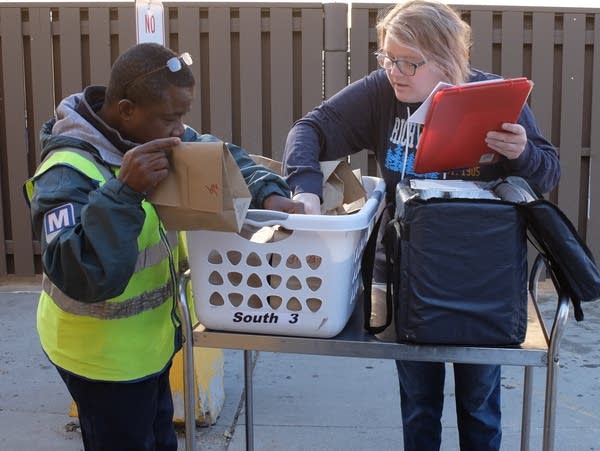In Moorhead, city bus drivers pitch in to deliver meals

Andrea Pollock helps Osbert Duoa arrange meals to be delivered to senior citizens in Moorhead on Tuesday. Fargo-Moorhead city bus drivers are teaming up with volunteers to make sure meals are delivered during the pandemic.
Dan Gunderson MPR | News
Go Deeper.
Create an account or log in to save stories.
Like this?
Thanks for liking this story! We have added it to a list of your favorite stories.


